The triumph of personal stories at the Singapore International Festival of the Arts
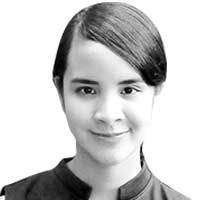
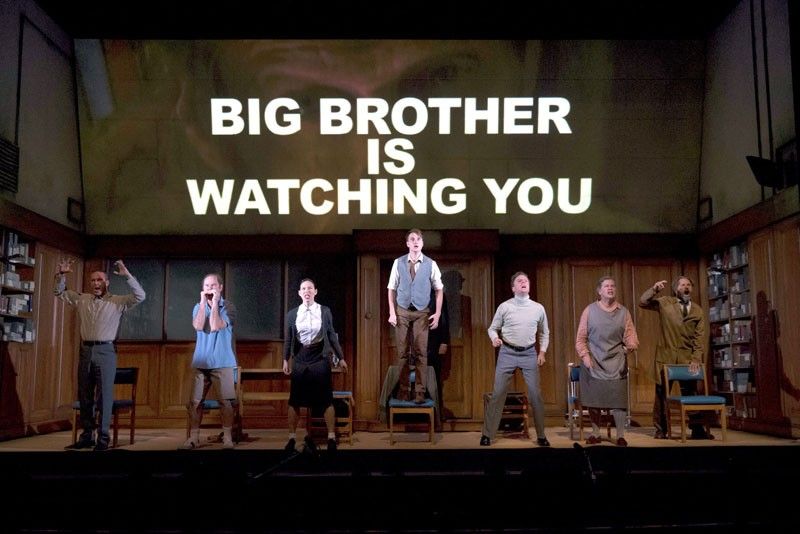
There is something about theater,” says Palestinian actor, playwright, and director Amer Hlehel, “that cinema can’t do. It’s immediate and direct — it’s happening now. We are here, both actors and audiences, and we each build our imagination through the story. It’s a very collective experience, but it’s also individual. You are part of an event, and you are making the film in your mind.”
If that were the case, there were a lot of filmic worlds worth conjuring on the night of May 5, more than a week into this year’s Singapore International Festival of the Arts (SIFA), organized by Arts House Limited, and which ran from April 26 to May 12.
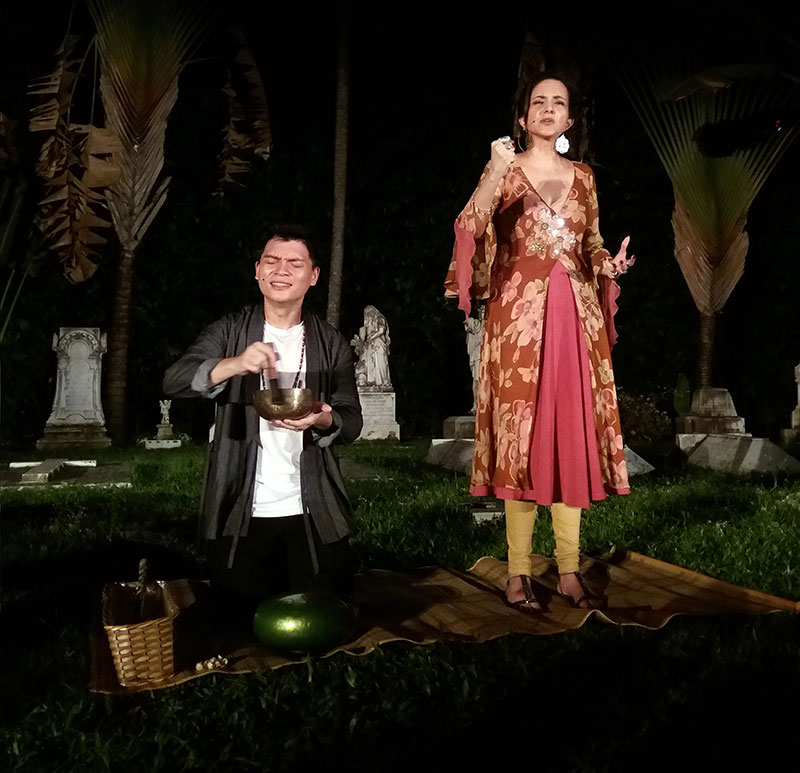
Musician Derrick Tay and storyteller Kamini Ramachandran perform in The Hidden, an intimate storytelling performance that takes place in Singapore’s oldest Christian church.
Toshi Reagon’s gripping vocals led the musical adaptation of Octavia E. Butler’s Parable of the Sower. In the forceful swell of blues, gospel, and folk music, the play portrayed a dystopian America plagued with issues that belonged less to fiction than to the news today.
In the Armenian Church built more than 180 years ago, Kamini Ramachandran has wound the clock a few more centuries back, spinning tales of gypsies and lost romances. In fighting to keep oral traditions alive — Ramachandran tells us that she does this full-time — it feels as though this fierce nostalgia for a forgotten past is a defiant response to a young country’s need for speed and progress, and also a refreshing antidote to our lives so gripped by technology’s panoptic gaze.
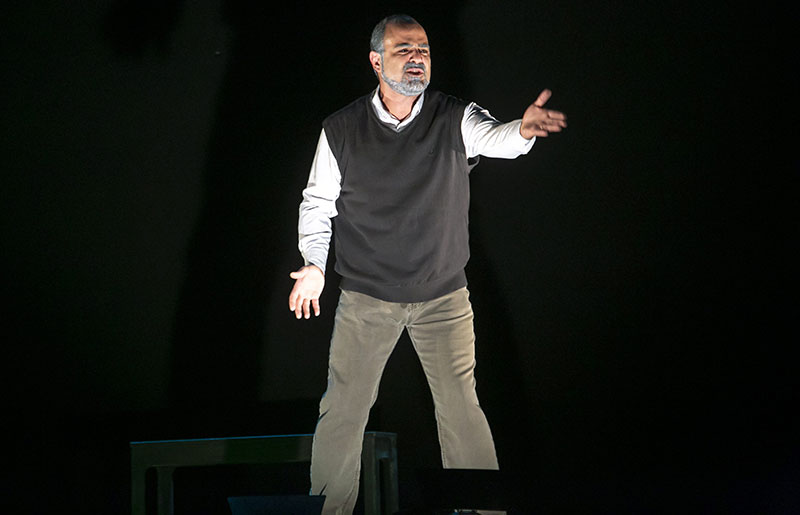
Amer Hlehel performs Taha, retelling the life of poet Taha Muhammad Ali who gave voice to a people’s loss and hope after the 1948 Palestine war. Photos courtesy of Arts House Limited
At the KC Arts Centre, Amer Hlehel stood on a bare set, as he slowly laid down the bones of a poet’s life changed by war. Taha is an hour-long monologue, but it seems we’ve been taken on a trip through a poet’s pained internal world as well as our own.
“Singapore is a young country. We are growing the art scene and SIFA plays a big part in that,” says Gaurav Kripalani who has started his three-year appointment as festival director this year. Kripalani, who helms the Singapore Repertory Theater (SRT), has crafted an extensive range of shows in dance (American tap dancer Michelle Dorrance performed in The Blues Project and Israeli dance company L-E-V staged a visceral choreography in response to a spoken-word poem); in music (there’s Grammy Award winner and YouTube jazz star Jacob Collier); and in theater (adaptations of George Orwell’s 1984 and Henrik Ibsen’s Enemy of the People were among the highlights).
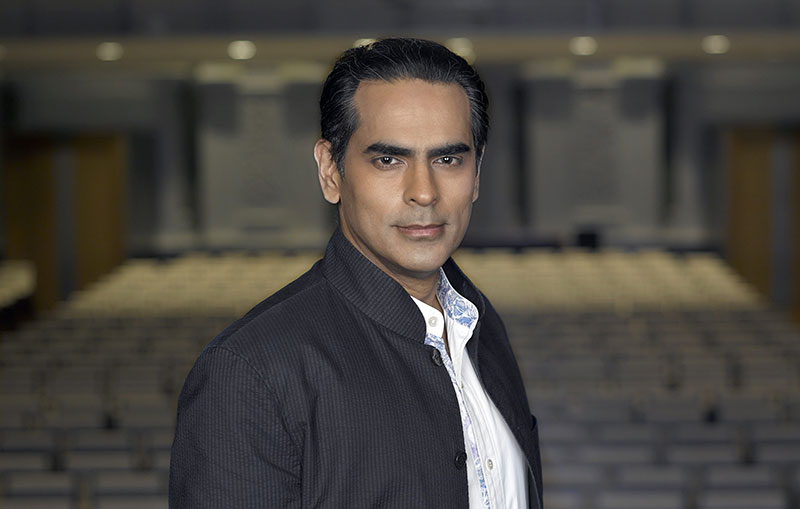
Gaurav Kripalani takes the reins as festival director from 2018 to 2020. Part of Kripalani’s initiative was to offer $10 frontrow seats to students. “It’s very much about making sure there’s art that’ll excite the people who are dedicated art lovers, and getting in new audiences,” he says, “and a big part of gettingnewaudiences is the next generation.”
“There’s a reason why 1984 is back on the bestseller list around the world,” says Kripalani. “These issues of fake news and surveillance are global issues. The issue of ‘individual versus society’ becomes a running theme in the festival.”
Alongside these crowd-drawing productions, however, SIFA’s 41st year likewise reveled in a sense of smallness: intimate poetry and script readings, discussions on the text on which the plays were based, and a shift from the pompous political to the achingly personal, from society to individual. While issues of censorship still loomed thick on this side of the globe, the festival furnished a liberating space especially for practitioners whose own homes don’t enjoy a flourishing artistic climate.

Created by Toshi Reagon (left) and her mother Bernice Johnson Reagon, Parable of the Sower retells Octavia E. Butler’s sci-fi novel through African-American music and spiritualism.
“Our main repertory theater in Haifa has closed,” shares Hlehel, “because the ministry decided to freeze the money.” The Arabic version of Taha opened in 2014, while his English version was launched only last year. “Until that time,” says Hlehel, “nobody was interested to stage a one-man show telling a story of Palestine in Arabic to the world… I always hoped that I can share Taha’s story with as many people as I can and now, I’m living the dream! I’m here in Singapore, this is the other part of the world for us.”
Hlehel admits, however, that he would feel terrible if he were chosen to participate in an international festival simply for the reason that he was Palestinian. What carried greater weight than the politics of representation, to him, is the power of a personal story to reach and find strong resonance within a multicultural audience.
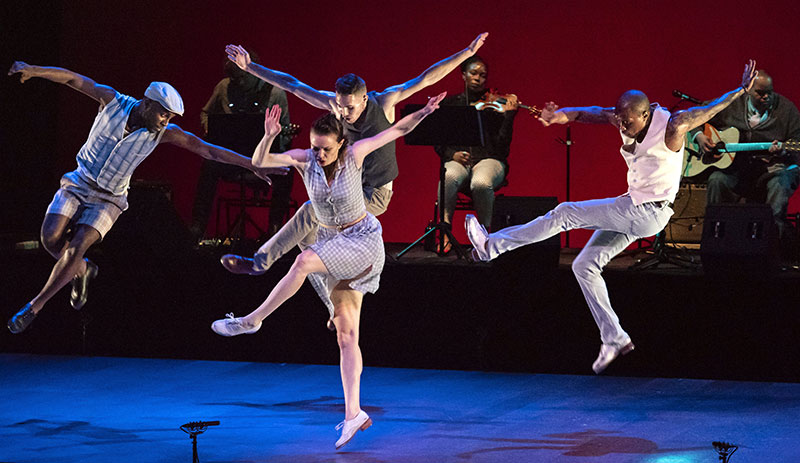
The Blues Project is a collaboration between American tap dancer Michelle Dorrance and musician Toshi Reagon. Ibsen’s Enemy of the People were among the highlights)
“Now, we are just headlines in the world,” he says. “We want to put our personal stories as humans on stage.” This ethos was once championed by Taha Muhammad Ali, the poet around whose life the play revolves. After the 1948 war, Hlehel shares, the Palestinian poetry scene was rife with the subject of catastrophes and larger histories. Taha became the first voice that articulated the loss of small things, “the sadness and pain of losing our small, boring lives.”
This sense of intimacy and immediacy is echoed in Hlehel’s play, for what wounds in Taha isn’t the mention of havoc — much of that is omitted — but the moments of innocence: a child lamenting how the smell of bread in the bakery has turned to smoke.
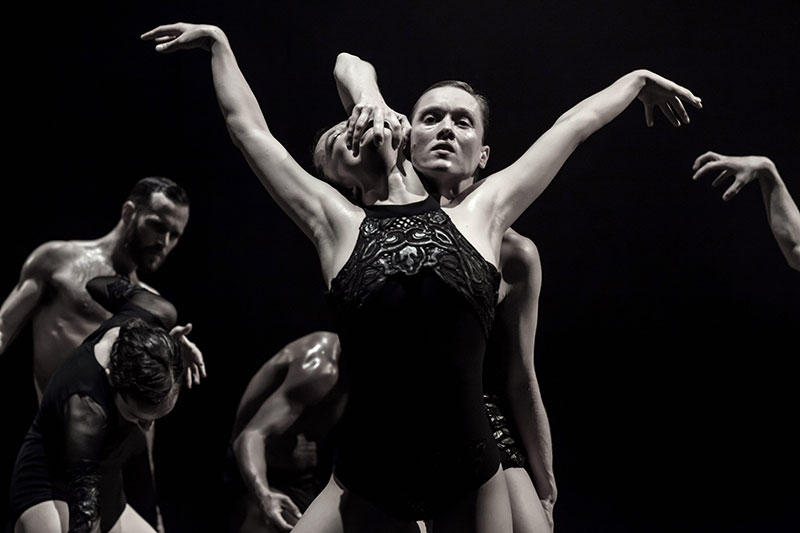
Inspired by a poem, OCD Love, choreographed by Sharon Eyal and performed by L-E-V dance company, fluidly combines movement, music and technology, as bodies echo a story of pathological love.
“When you say ‘we lost a country,’” says Hlehel, “they will identify with this but with such a distance! But when you directly connect with what they can touch, smell, or see, even if it’s a story that happened 70 years ago in a small village in Palestine, and you are now in Singapore, it doesn’t matter. You reduce the gap between you and the audience.”
Festivals are communal experiences. In allowing plurality, SIFA builds on the capacity of theater to connect. Here, the collective is a chorus of diverse individual voices whose stories still resonate within our times. We still relate to loss suffered by a poet long ago, distilled in verses, or evoked by an actor’s shaking hand.


















